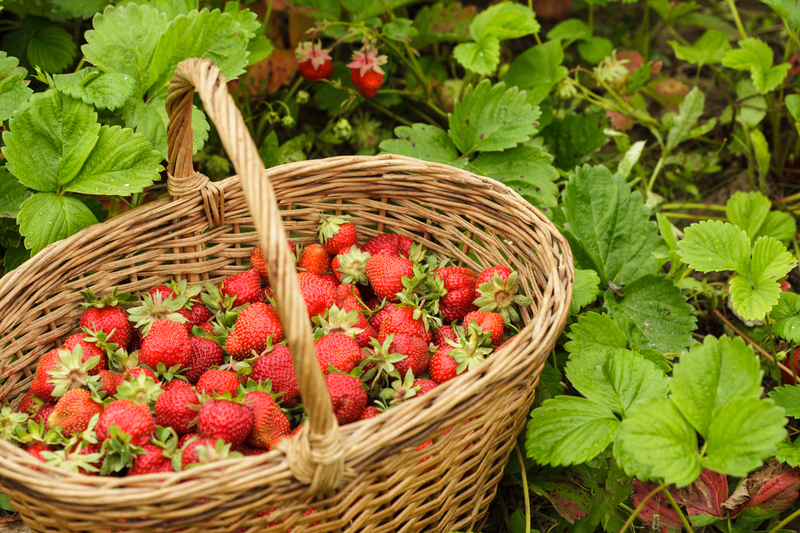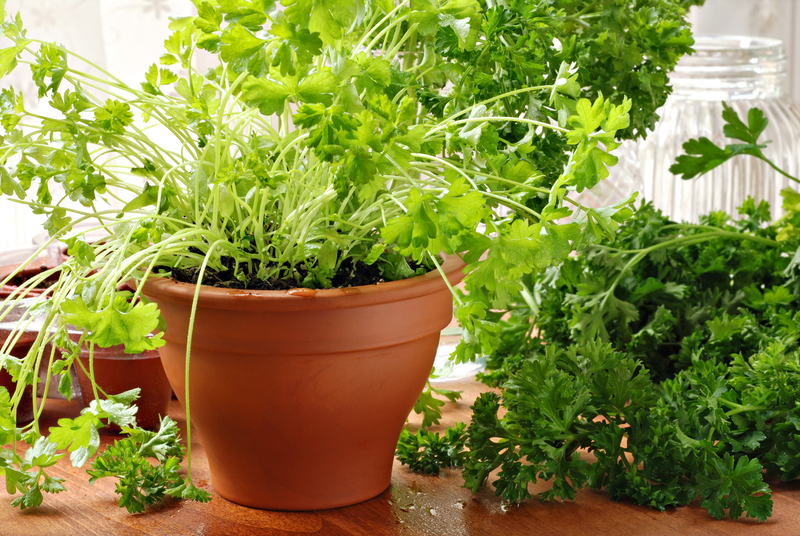Starting Your Garden: 9 Must-Know Tips for Beginner Gardeners
Posted on 27/06/2025
Starting Your Garden: 9 Must-Know Tips for Beginner Gardeners
Gardening is a rewarding and therapeutic hobby that allows you to connect with nature, produce your own fresh food, and enhance the beauty of your home environment. If you're new to gardening, you might feel overwhelmed by the wealth of information available. Don't worry--this comprehensive guide covers the essential gardening tips you need to get started on your journey successfully. Whether your goal is to cultivate vibrant blooms or grow wholesome vegetables, these beginner gardener strategies will pave the way to a lush, flourishing garden.
1. Choose the Right Location for Your Garden
The success of your garden begins with choosing the best location. Most plants thrive when they receive at least six to eight hours of sunlight daily. Evaluate your outdoor space throughout the day to determine the sunniest spots.
- Observe sun patterns: Gardens situated in full sun will be ideal for most vegetables and flowers. Partial shade areas are better for leafy greens and shade-loving plants.
- Consider water accessibility: Proximity to a water source simplifies regular watering, especially during dry periods.
- Think about convenience: Locating your garden near your home makes it easier to notice when plants need attention, giving you the chance to quickly harvest or deal with pests.
Tip: For city dwellers, container gardening on balconies and patios can be just as rewarding as traditional plots.

2. Assess and Prepare Your Soil
Healthy, nutrient-rich soil is the foundation of a successful garden. Before planting, it's crucial to evaluate your soil's type and condition.
Testing and Amending Soil
- Soil test: Simple DIY test kits or professional services can determine your soil's pH level and nutrient content.
- Add organic matter: Incorporate compost, manure, or peat moss to enrich the structure and fertility of your soil.
- Check drainage: Water should soak in and not puddle after rain; improve heavy clay soil by adding sand or compost.
For new garden beds, remove weeds and till the soil 8-12 inches deep. If your local earth is poor, consider raised beds for more control over the soil quality.
3. Pick the Right Plants for Your Climate
Not all plants flourish in every environment. Study your USDA Hardiness Zone to find out which varieties are best suited to your local climate.
- Annuals versus perennials: Annuals complete their life cycle in one season, while perennials return year after year. Mix both for continuous color and harvests.
- Native plants: Plants adapted to your region require less maintenance and resist local pests and diseases more effectively.
- Disease resistance: For beginners, choose plant varieties labeled as resilient to common diseases.
Researching plant needs ensures fewer headaches and a more successful start to gardening.
4. Start Small and Simple
One of the biggest mistakes new gardeners make is planting too much at once. Begin with a manageable plot--consider a 4x4 or 4x8-foot bed or a few containers.
- Focus on easy-to-grow plants: Leafy greens, tomatoes, marigolds, zinnias, and herbs are great starter crops.
- Fewer plants, better care: Focusing on a small selection allows you to learn each plant's needs and monitor their progress.
Remember: It's better to have a small, thriving garden than a large, neglected one.
5. Learn About Planting Seasons
Good timing leads to impressive results in the garden. Each plant has an optimal period for sowing and harvesting.
- Check planting calendars: Seed packets and online resources can help you plan when to plant in your region.
- Know frost dates: Plant sensitive crops after the last spring frost, and harvest before the first autumn frost.
- Succession planting: For a continuous harvest, plant new seeds every couple of weeks instead of sowing everything at once.
6. Master the Art of Watering
Proper watering techniques are vital. Over-watering is just as damaging as underwatering.
- Water early in the day: This minimizes evaporation and allows leaves to dry, reducing the risk of fungal diseases.
- Deep, infrequent watering: Encourage roots to grow deeper by watering thoroughly but less often. Shallow daily watering can lead to weak plants.
- Monitor weather: Adjust your schedule based on rainfall and temperature changes.
Pro tip: Mulch around your plants to retain moisture and suppress weeds.
7. Mulch for Healthy Plants and Clean Beds
A layer of mulch keeps your soil cool, conserves moisture, and prevents weed growth. It's also an excellent way to enrich the soil as it breaks down.
- Organic mulches: Use shredded leaves, straw, bark, or grass clippings for natural improvement over time.
- Apply 2-3 inches: Too much mulch can smother plants, while too little won't be effective.
- Avoid direct contact: Keep mulch an inch or two away from plant stems to prevent rot.
8. Feed Your Garden Wisely
Balanced nutrition supports lush growth and abundant harvests. Plants draw nutrients from the soil, so replenish it each season.
- Use compost: Homemade or purchased compost is an excellent general fertilizer and soil conditioner.
- Try slow-release fertilizers: They provide steady nutrition without overwhelming young plants.
- Read labels carefully: Over-fertilizing can damage roots and harm beneficial soil organisms.
- Rotate crops: Changing what you plant each year helps prevent soil nutrient depletion and disease build-up.
9. Monitor and Manage Pests
Even the healthiest gardens can face challenges from insects and diseases. Early detection and gentle management are key, especially for beginners seeking organic gardening solutions.
- Encourage beneficial insects: Ladybugs and lacewings feed on common pests and should be welcomed into your garden.
- Regularly inspect plants: Check leaves for holes, discoloration, or sticky residue, which signal pest infestations.
- Hand pick: Remove caterpillars, beetles, and slugs manually when possible.
- Use natural remedies: Neem oil, insecticidal soaps, or a simple spray of water and mild soap can deter unwanted bugs.
Tip: Healthy, well-watered, and properly-spaced plants are more resistant to pests and diseases.
Bonus Tips for New Gardeners
- Keep a garden journal: Document what you plant, when you plant it, and any lessons learned for future success.
- Stay patient: Nature works in her own time; some plants take weeks or even months to mature and reward your efforts.
- Connect with the community: Find local gardening clubs or online forums to share tips and ask questions.

Common Mistakes to Avoid
- Planting too closely: Crowded plants compete for nutrients and become more susceptible to disease.
- Ignoring soil health: Neglecting soil leads to poor plant growth and increased pest problems.
- Overcomplicating designs: Keep layouts simple your first season and expand as your knowledge grows.
- Neglecting regular upkeep: Daily check-ins help catch issues before they escalate.
Final Thoughts: Growing Your First Garden with Confidence
Embarking on your gardening journey is a blend of science, patience, and creativity. With these 9 essential gardening tips for beginners, you'll be well on your way to creating a vibrant, healthy garden. Start small, keep learning, and allow yourself to enjoy both the successes and the setbacks along the way. Remember, every seasoned gardener was once a beginner--your garden will flourish with a little time, effort, and the right know-how!
Ready to dig in? With these must-know gardening strategies, you are set to plant the seeds of a rewarding and sustainable new hobby. Happy gardening!

